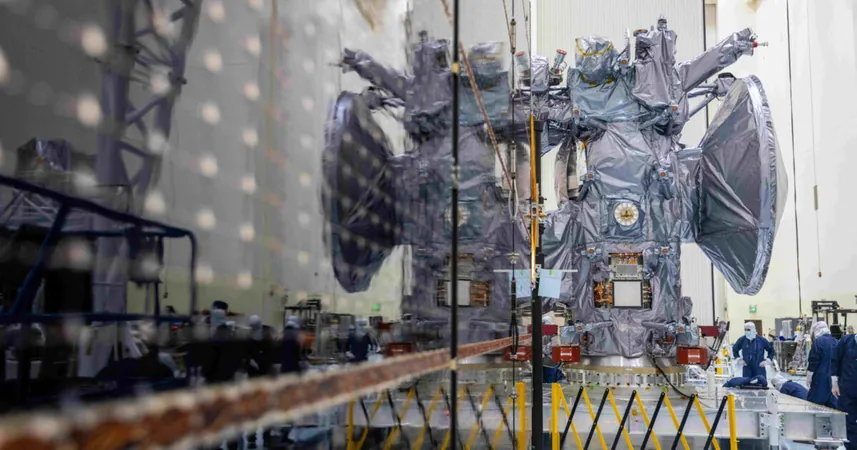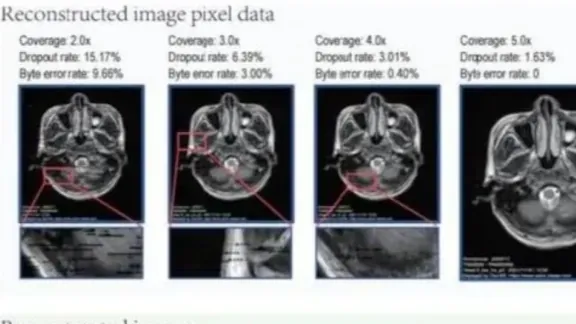
The Journey to Europa Clipper: A Testament to Advocacy and Collaboration in Space Exploration
2024-10-09
Author: Wei Ling
The Europa Clipper mission is on the verge of launching, and it’s a monumental achievement that owes much to the relentless advocacy from global space enthusiasts. This mission, set to explore Jupiter's moon Europa, stands out as one of the most promising voyages in our search for extraterrestrial life, but its path to initiation has not been without challenges.
In a recent episode of Planetary Radio, Sarah Al-Ahmed from The Planetary Society reflects on how advocacy played a pivotal role in the mission’s existence. She notes, "Europa is one of the most exciting targets beyond Earth due to its potential for life, but without the passion of space supporters, we may never have seen this mission become reality." With much anticipation, the Europa Clipper is preparing for its launch, alongside the European Space Agency's Hera mission, which recently blazed a trail into space to study the Didymos and Dimorphos asteroid system.
While Hera has successfully launched, the Europa Clipper's launch faces delays due to Hurricane Milton bearing down on Florida's Space Coast. Al-Ahmed expresses the urgency and gravity of the situation, acknowledging how inclement weather can impact vital space missions. The hurricane's approach has caused the mission team to make difficult decisions about timelines and safety protocols, further highlighting the intricate balance of ensuring mission success while protecting team members and equipment.
Moreover, the timeline for both missions is ambitious. While the Europa Clipper is set to embark on its journey soon, it will take several years—approximately six years for the spacecraft to reach its destination. Team members at The Planetary Society, including Senior Communications Advisor Mat Kaplan, emphasize the significance of international cooperation in these missions. The collaboration between different space agencies not only facilitates financial justification for these multimillion-dollar missions but also emphasizes the unifying nature of humanity’s pursuit of knowledge.
As they gear up for the journey, excitement is palpable, particularly for what discoveries await at Europa. This icy moon is believed to harbor a subsurface ocean that might host conditions favorable for life. Observations from past missions, such as Voyager and Galileo, hinted at this critical fact, sparking interest that advocates have tirelessly nurtured over decades. Casey Dreier, Chief of Space Policy at The Planetary Society, shared insights into how years of advocacy work culminated in this moment, tracking back to the first decadal survey in 2002 that identified Europa as a key mission priority.
Al-Ahmed underscores the long battle for funding and support was essential for getting Europa Clipper off the ground, reminding listeners that while the mission signifies scientific advancement, it is also a victory for the collective advocacy from space fans everywhere.
As we look forward to the launches, there’s an ongoing promise of exciting developments in the field of planetary science. With comets making their appearance in our night sky this October, the excitement around Euro Clipper’s launch has more than a few layers. Those intrigued by the mysteries of outer space are reminded that there are multiple paths to discovery—paths that don't just belong to scientists and space agencies but to everyone who champions the quest for knowledge and exploration.
In conclusion, the Europa Clipper mission is set not only to challenge our understanding of the cosmos but also serves as a reminder of how collaboration, advocacy, and a shared passion for science can transcend challenges, creating a profound journey that redefines our place in the universe. The world awaits the discoveries that lie ahead in this ambitious mission, and fingers crossed for safe travels to Europa!





 Brasil (PT)
Brasil (PT)
 Canada (EN)
Canada (EN)
 Chile (ES)
Chile (ES)
 España (ES)
España (ES)
 France (FR)
France (FR)
 Hong Kong (EN)
Hong Kong (EN)
 Italia (IT)
Italia (IT)
 日本 (JA)
日本 (JA)
 Magyarország (HU)
Magyarország (HU)
 Norge (NO)
Norge (NO)
 Polska (PL)
Polska (PL)
 Schweiz (DE)
Schweiz (DE)
 Singapore (EN)
Singapore (EN)
 Sverige (SV)
Sverige (SV)
 Suomi (FI)
Suomi (FI)
 Türkiye (TR)
Türkiye (TR)